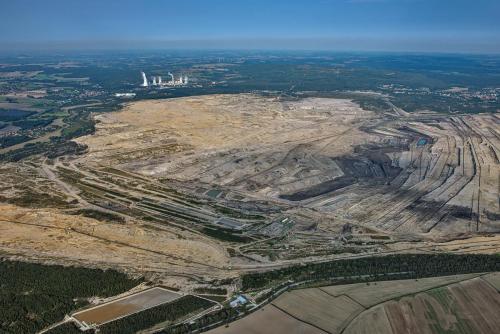Due to air pollution, twice as many children in the Ostrava and Karviná region suffer from asthma and allergic rhinitis than in the rest of the country. The problem of air pollution affects not only Ostrava, but also North Bohemia, Prague and Brno. Poor air quality and long-term exposure to high concentrations of benzo(a)pyrene and arsenic, smog and dust cause respiratory and cardiovascular diseases, lung cancer, liver and kidney tumours, allergies and eczema. It is therefore in all of our interests that we address the current situation. According to research by the European Environment Agency (EEA), cleaner air could have saved at least 178,000 lives in the European Union in 2019. However, protecting our health and reducing healthcare costs is not all that is at stake. Improving air quality is also good for climate change mitigation and drives innovation in the energy sector. To illustrate, coal-fired power stations, heating plants and heating systems are the main contributors to both air pollution and climate change in the Czech Republic.
Problem definition
The Czech Republic has so far failed to present sufficient measures and does not comply with the immission limits stipulated by European law.
-
In 2010, the European Commission launched an infringement procedure against the Czech Republic, under the Treaty on the Functioning of the EU, for breaching the immission limits for dust (PM10). Since 2016, another infringement procedure has been opened for exceeding the limit values for nitrogen oxides (NOx). If the Czech Republic fails to present a clear plan for achieving compliance with the Directive, it could face legal action from the European Commission before the European Court and possibly severe financial sanctions.
-
There is a lack of clear strategy—the documents adopted by the Ministry of the Environment are insufficient. According to a report by the European Commission, the Czech Republic must increase the share of renewable energy in its energy consumption (except for biomass), improve the energy performance of buildings, and promote more sustainable heating systems.
-
Czech authorities continue to grant the coal power plant operators generous exemptions from emission limits with regards to the best available techniques (BAT). No other EU country shows such leniency when it comes to coal-fired power plants. This is despite the fact that coal-fired power plants are responsible for approx. 70% of mercury emissions in the Czech Republic. Mercury then accumulates in water and soil and is absorbed into the food chain. It is therefore hardly surprising that the Czech Republic has one of the highest mercury emissions per square km in the EU, and its citizens are therefore most at risk from the negative effects of this toxic substance.
Solving the problem
Together with local initiatives and municipalities, we focus on the following key areas:
-
We represent the public interest to protect the environment and human health in the proceedings about exemptions from BAT emission limits. In the most severe cases, we use legal action to try and terminate unlawful exemptions. This applies to the largest mercury polluters—the Počerady and Chvaletice power plants—which may each release approx. 1,200 kg of toxic mercury into the environment as a result of the exemptions they have been granted.
-
In public interest cases, we represent citizens living in excessively polluted localities (particularly Ostrava-Radvanice and Bartovice) in lawsuits over the state liability for the damage to health caused by long-term exposure to air pollution which the government failed to address.
-
We work on key environmental cases. We have achieved big legal victories in the case of illegal mining in Turów and in proceedings about emission limits for the Chvaletice lignite plant.
-
We are one of the founders of the Community Energy Union (UKEN) which works on the transformation of the Czech energy sector towards cleaner and decentralised energy sources.
Mine Turów

Current situation
In 2018-2022, we participated in a total of 17 (out of 19) proceedings about exemptions from emission limits based on the best available techniques (BAT), which we had classified as the potentially most harmful to human health and the environment. In most cases, thanks to our active participation, Czech authorities granted stricter terms of the exemptions compared to the original applications by the plant operators. The amount of mercury released into the environment was thus reduced by 1,671 kg. We actively communicated with the municipalities located near the coal power plants in question about the proceedings, providing them with legal assistance if asked for. We also cooperated with other environmental organisations such as Hnutí DUHA – Friends of the Earth Czech Republic, Greenpeace Czech Republic, Zelená pro Pardubicko (Green for Pardubice region) and Čisté nebe (Clean Sky) in Ostrava.
In 2021, we filed a lawsuit against the two largest exemptions granted to the Chvaletice and Počerady power plants. If granted, these exemptions would have resulted in a total of 2,400 kg of mercury polluting the environment. In spring 2022, the regional court granted suspensive effect in the lawsuit against the exemption for the Chvaletice power plant. This means that until the case is resolved in court, the Chvaletice exemption has no legal effect.
Since December 2018, we have also been representing in court a citizen of Ostrava-Radvanice who is suing the state (the Ministry of the Environment) for health damage and death caused by long-term exposure to air pollution, against which the Ministry is not taking sufficient measures. The case is currently pending before the Czech Constitutional Court.
Together with several other organisations, we commissioned 2 studies on the possibilities of phasing out all coal power plants from the Czech power grid within the next 10 years. According to the experts, the prognosis looks promising—by 2030, it is possible to secure stable supply in the Czech Republic by using renewables together with adequate measures to compensate for fluctuations in their production, thus following the European trend. According to another recent study, up to 79 % of household energy consumption could be covered by community energy.


